Summer evenings spent outdoors can be pure bliss – until the unwelcome arrival of mosquitoes. These buzzing pests not only disrupt our enjoyment, but also carry the potential for serious diseases. While chemical repellents are an option, many people prefer a more natural approach. Luckily, Mother Nature has provided a delightful solution: mosquito-repellent plants and trees!
These botanical warriors not only beautify your surroundings, but also emit scents that effectively deter these pesky insects. Let’s explore 14 of the most effective mosquito-repelling plants and trees you can incorporate into your landscape for a bite-free summer.
1. Citronella Grass: The Classic Choice

Citronella grass is a well-known mosquito repellent, and for good reason. This tropical, clump-forming grass boasts long, slender leaves with a refreshing lemony scent. This scent comes from citronella oil, a natural insect repellent commonly used in candles and torches. While the oil itself is more potent, simply having citronella grass growing nearby can significantly reduce mosquito activity.
Citronella grass is a low-maintenance plant that thrives in warm, sunny locations with moist, well-drained soil. It can be grown in the ground or in containers, making it perfect for patios, balconies, or even indoors near sunny windows.
2. Lavender: Beauty with a Bite-Repelling Bonus

Lavender isn’t just for creating a calming atmosphere. This beautiful herb, with its fragrant purple flowers and silvery-green foliage, is also a natural mosquito repellent. The pleasant scent we enjoy is actually quite bothersome to mosquitoes, keeping them at bay.
Beyond its mosquito-repelling properties, lavender is a versatile plant with culinary and household uses. The fragrant flowers can be used to make calming teas, sachets, or potpourri. A few sprigs of lavender tucked into dresser drawers can even deter moths!
3. Marigolds: Cheerful Blooms that Deter Mosquitoes

Marigolds are not only cheerful and easy to grow, but they’re also effective in deterring mosquitoes. These vibrant annual flowers come in a variety of colors, from sunny yellow to fiery orange and deep red. Their strong marigold odor, while not unpleasant to humans, is quite off-putting to mosquitoes.
Marigolds are not just beneficial for keeping mosquitoes away; they also act as companion plants in vegetable gardens. Their strong scent helps to deter some harmful insects, making them a valuable addition to your veggie patch.
4. Rosemary: A Culinary Herb with Mosquito-Repelling Power

Rosemary is a woody herb with needle-like leaves that not only adds a delicious flavor to countless dishes, but also repels mosquitoes. The oils in its leaves give off a strong, aromatic scent that these flying insects find quite disagreeable.
Rosemary is a versatile plant that can be grown in the ground, raised beds, or even containers. Its upright growth habit and beautiful green foliage make it an attractive addition to any garden. Plus, having fresh rosemary readily available means you can always enhance your summer grilling and cooking.
5. Lemon Balm: A Fragrant Herb that Keeps Mosquitoes at Bay
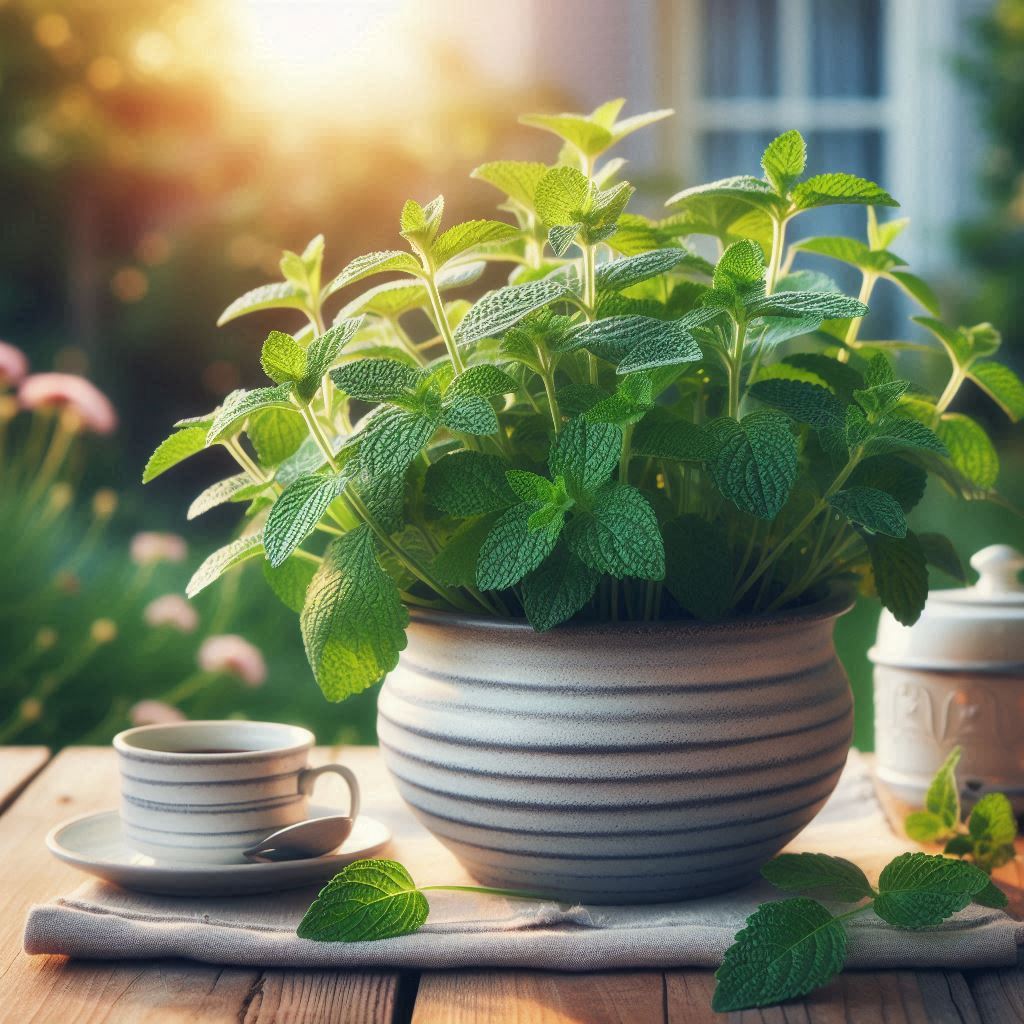
Lemon balm, with its vibrant green leaves and refreshing lemon scent, is another excellent choice for a mosquito-repellent plant. As the name suggests, its leaves contain a high concentration of citronella oil, the same insect repellent found in citronella grass. This natural oil effectively repels mosquitoes and other flying insects while providing a delightful lemony fragrance for humans.
Lemon balm is a fast-growing herb that thrives in moist, well-drained soil in partial shade. Its leaves can be used fresh or dried to make calming teas or other herbal remedies.
6. Catnip: A Cat’s Delight, a Mosquito’s Repellent

Catnip, a member of the mint family, is well-known for its irresistible allure to cats. However, the strong, minty scent that cats adore is actually quite unpleasant to mosquitoes. This makes catnip a great choice for deterring these pests, although it’s important to consider if you have feline companions who might be overly enthusiastic about this plant.
Catnip is a low-growing perennial herb that spreads easily. It prefers full sun and well-drained soil. While it may not be suitable for formal gardens, it can be a valuable addition to a butterfly garden or a hidden corner where mosquitoes tend to gather.
7. Scented Geraniums: A Fragrant Fiesta for Mosquito Repellent

Scented geraniums, also known as citronella geraniums, are a delightful addition to any mosquito-repelling plant collection. These vibrant flowering plants come in a variety of scents, including citronella, lemon, peppermint, and rose. Their strong citrusy or minty fragrances effectively deter mosquitoes while adding a touch of beauty to your patio or balcony.
8. Lemon Verbena:
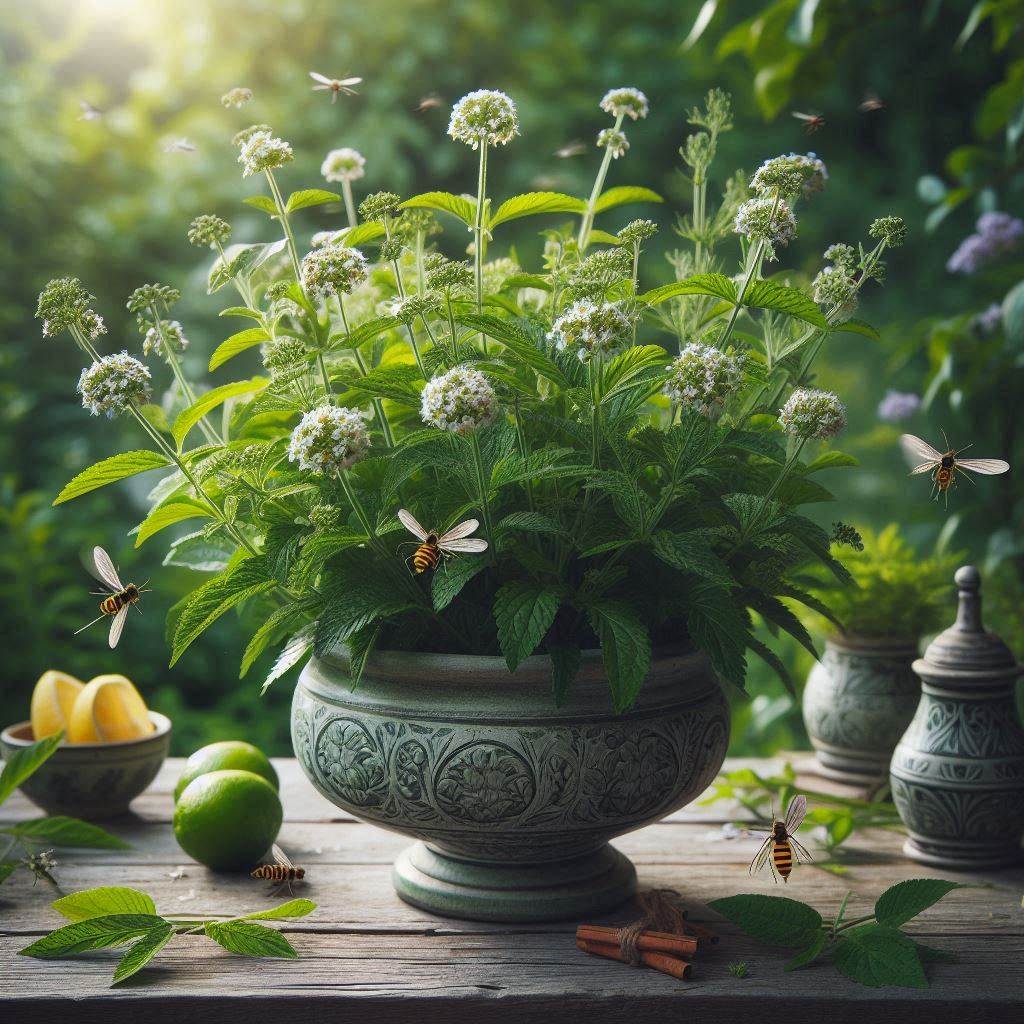
This citrusy delight boasts fragrant lemon-scented leaves that not only repel mosquitoes but also add a refreshing touch to your patio. Lemon verbena thrives in warm, sunny locations and can be grown in containers or directly in the ground. Its leaves can be used fresh or dried to make fragrant teas or even potpourri.
9. Pennyroyal:
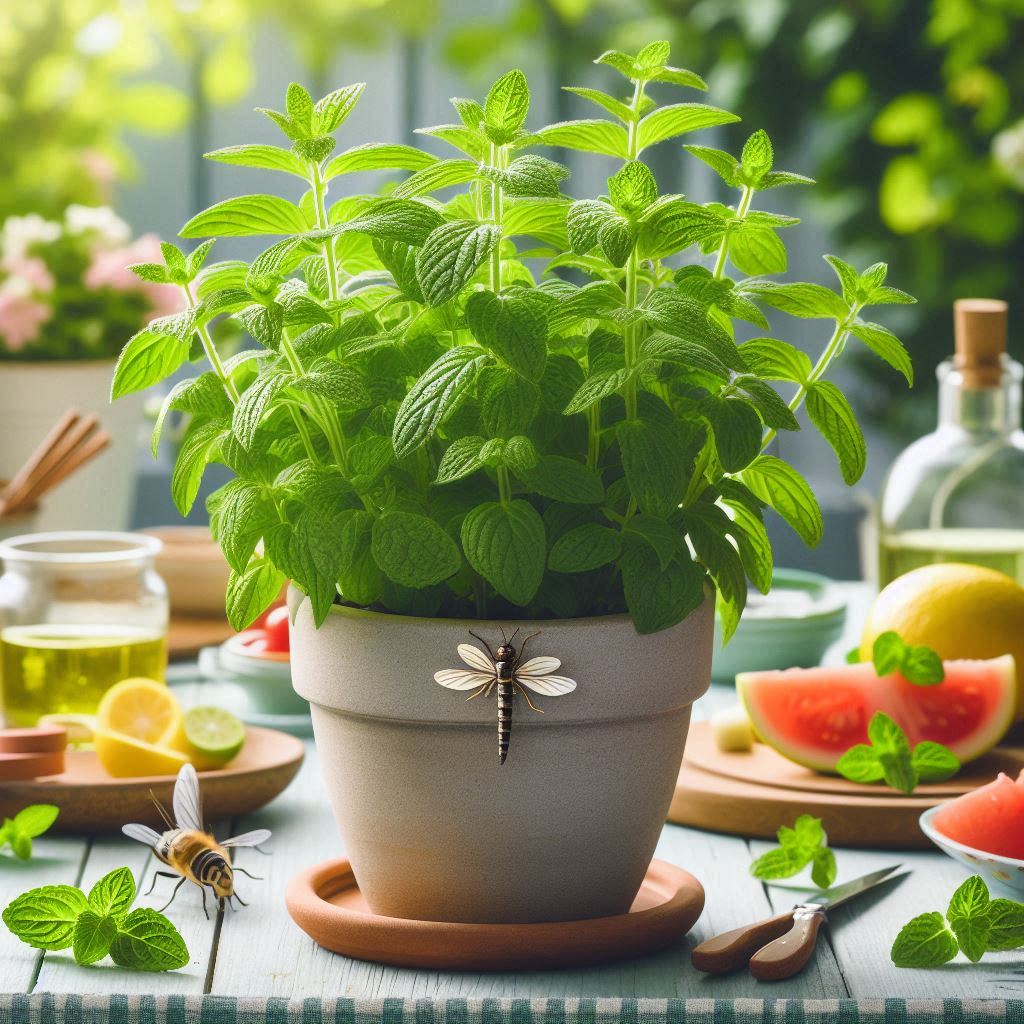
While pennyroyal is a potent mosquito repellent, it’s important to use caution. This herb can be toxic if ingested in large quantities, so avoid planting it in areas accessible to children or pets. However, strategically placed potted pennyroyal near patios or doorways can provide effective mosquito deterrence.
10. Peppermint:
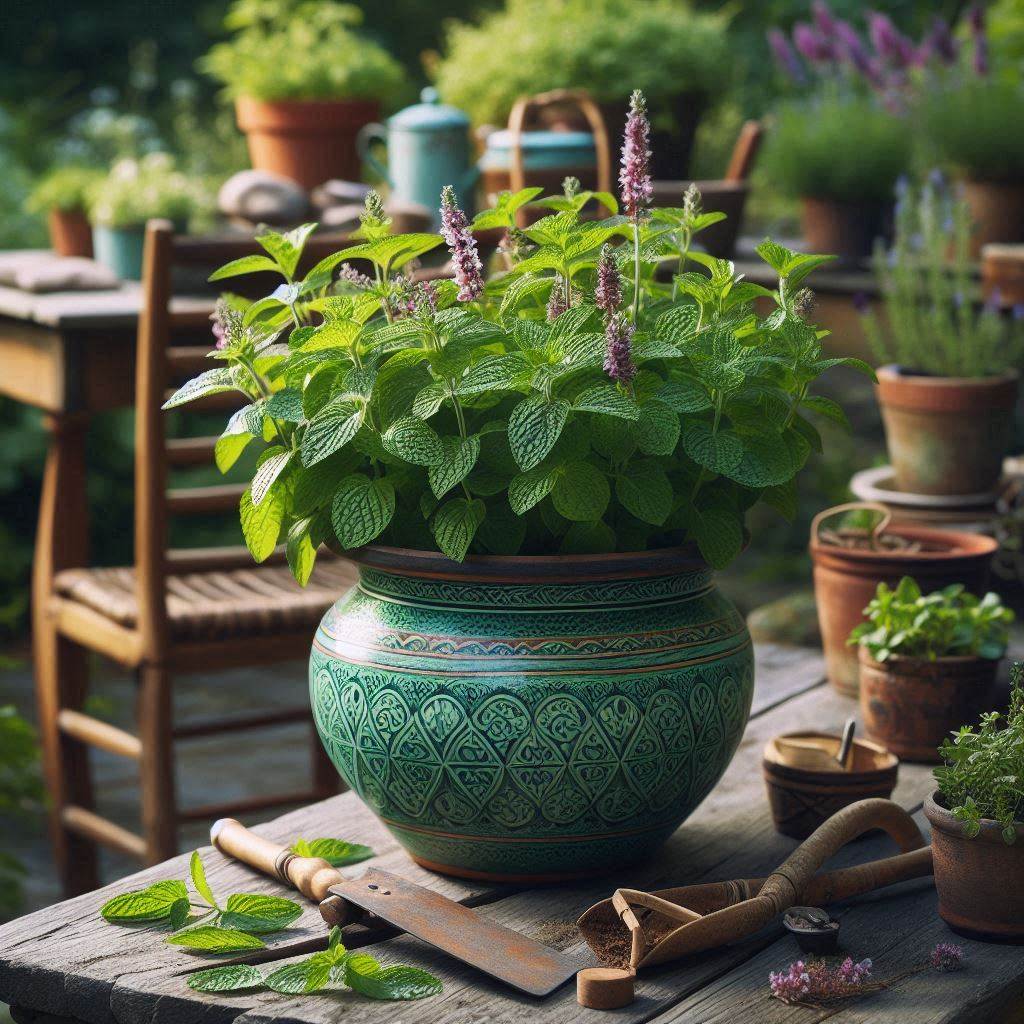
Peppermint isn’t just for delicious candies and teas. The strong, minty scent of peppermint leaves is quite offensive to mosquitoes. Plant peppermint in pots or along walkways to create a natural mosquito barrier. Be aware that peppermint is a fast-growing spreader, so consider planting it in containers or with a root barrier to control its spread.
11. Nepeta (Catmint):
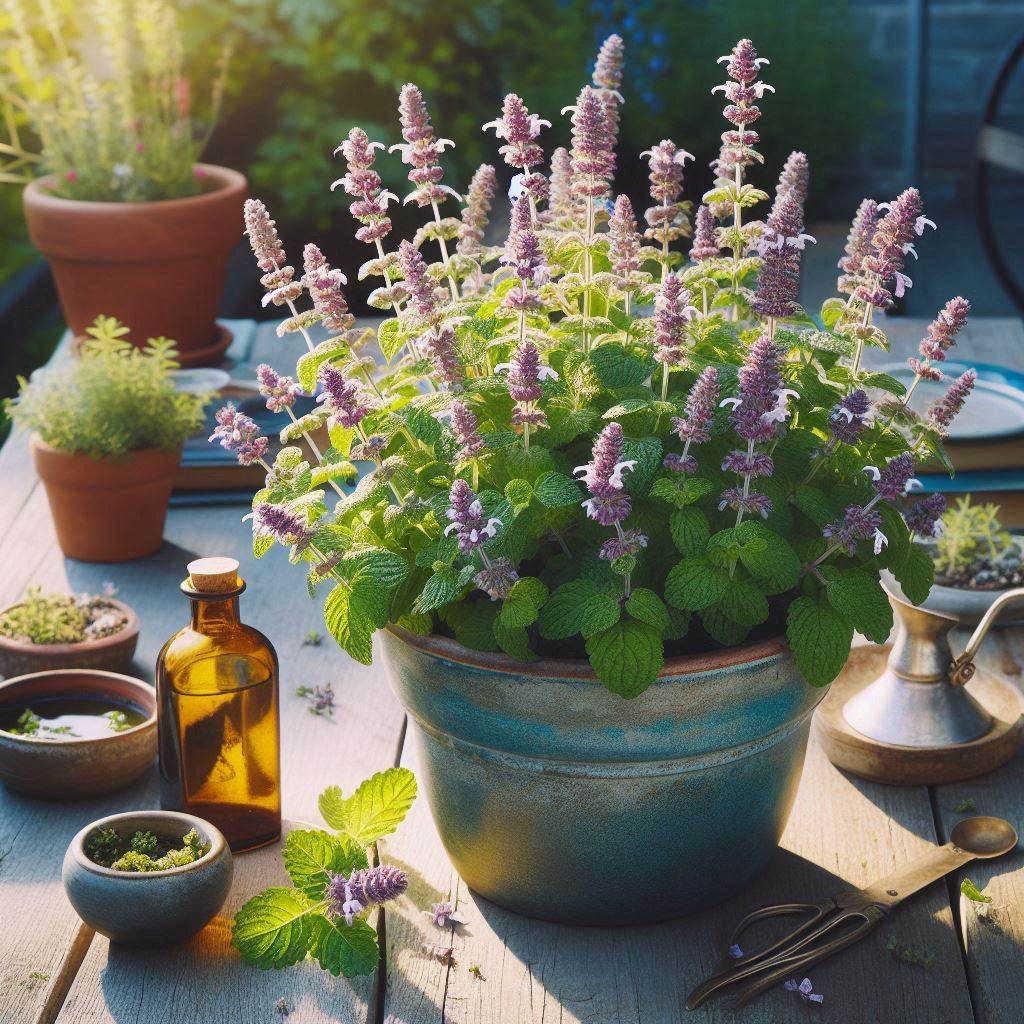
Don’t confuse nepeta, or catmint, with its close relative catnip. While catnip attracts cats, nepeta repels mosquitoes with its strong, minty fragrance. This low-maintenance perennial herb comes in a variety of colors, from lavender to pink and white, adding a touch of beauty to your mosquito defense strategy.
12. Citronelly Eucalyptus:
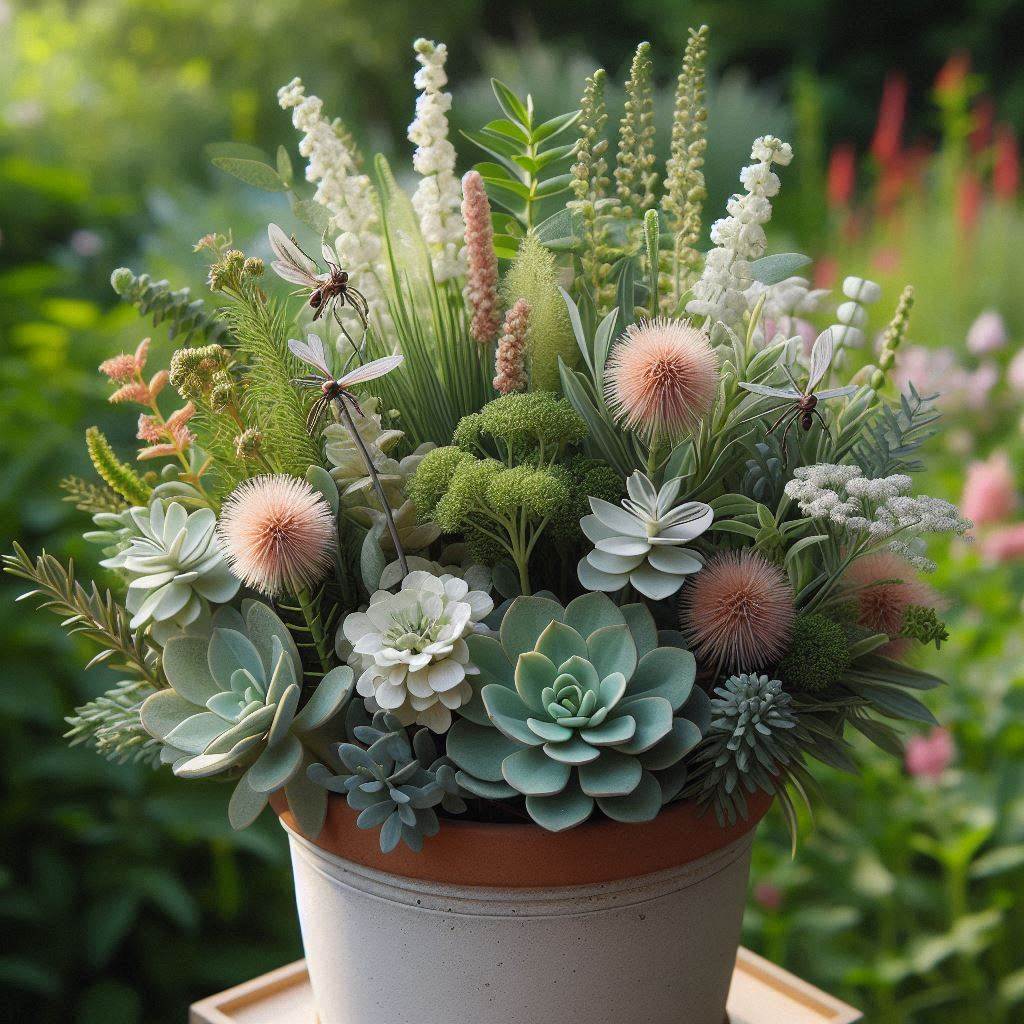
This fast-growing evergreen tree is a powerhouse for mosquito control. The leaves of citronelly eucalyptus contain a high concentration of citronella oil, making it a highly effective mosquito repellent. However, due to its fast growth and large size, citronelly eucalyptus is best suited for larger gardens or properties.
13. Clemson Monarda (Bee Balm):
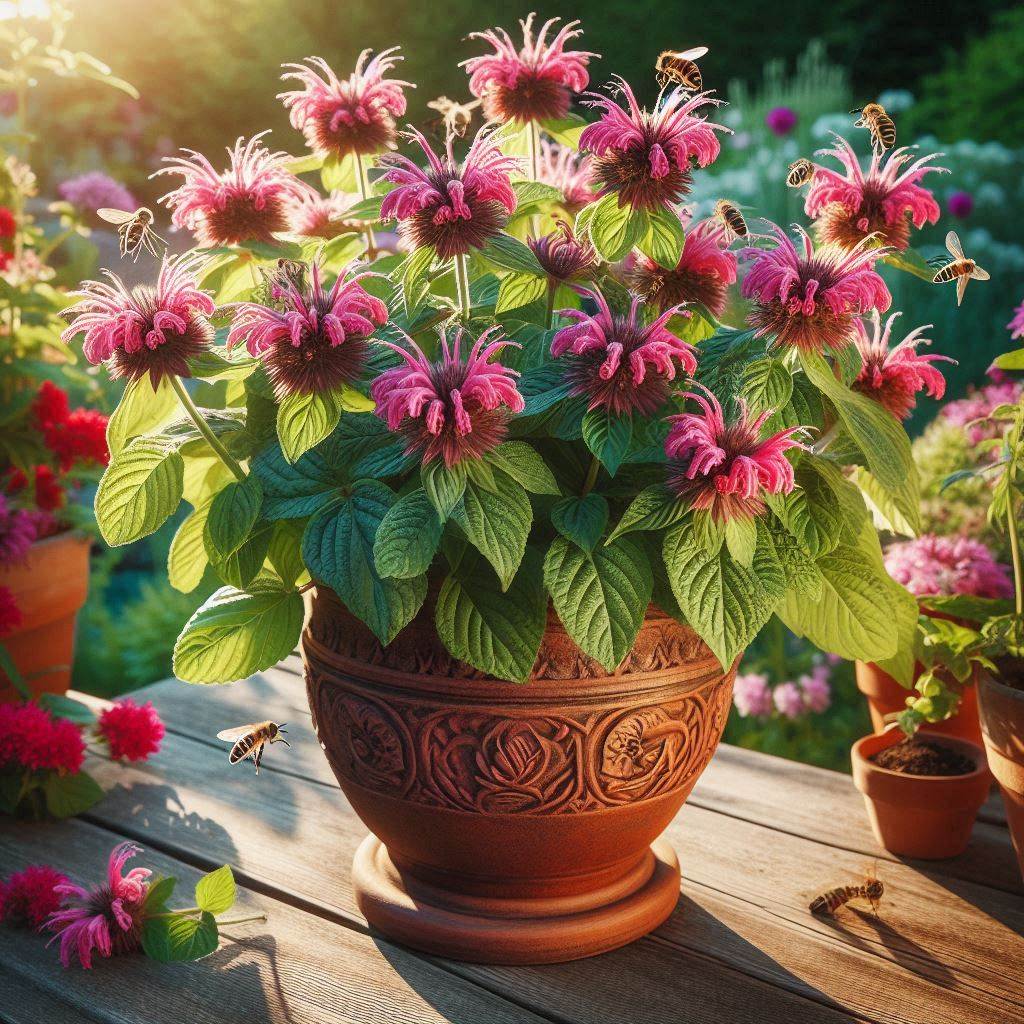
This vibrant flowering perennial is a favorite among hummingbirds and butterflies, but not so much for mosquitoes. Clemson Monarda boasts beautiful red blooms and emits a citrusy scent that repels these pesky insects. This easy-to-grow plant thrives in full sun and moist, well-drained soil.
14. Thai Basil:

If you enjoy the flavors of Southeast Asian cuisine, Thai basil can be a delicious and functional addition to your mosquito defense plan. This fragrant herb not only enhances your culinary creations, but its strong, spicy scent also repels mosquitoes. Thai basil thrives in warm, sunny locations and can be grown in pots or garden beds.
Maximizing the Power of Your Mosquito-Repellent Plants
Now that you’ve discovered a variety of mosquito-repelling plants, here are some tips to maximize their effectiveness:
- Create a Natural Mosquito Barrier: Plant a variety of these mosquito-repellent plants around your patio, seating area, or doorways. This will create a zone of protection against these unwelcome visitors.
- Strategic Placement: For targeted defense, place potted plants near doorways, windows, or other areas where mosquitoes might try to enter your home.
- Plant Power in Numbers: While a single plant can provide some level of protection, planting several different mosquito-repellent plants in close proximity will create a stronger defense.
Living with Nature’s Solutions
While these plants offer a natural and eco-friendly way to deter mosquitoes, it’s important to remember that they may not completely eliminate them. Here are some additional strategies to consider for a well-rounded mosquito control plan:
- Eliminate Breeding Grounds: Mosquitoes breed in stagnant water. Regularly empty birdbaths, wading pools, and other containers that collect water to prevent mosquito larvae from developing.
- Consider Natural Repellents: In addition to plants, citronella candles or torches can provide additional protection in outdoor areas.
- Dress for Defense: When spending time outdoors, wear long, loose-fitting clothing made from tightly woven fabrics. Opt for light-colored clothing, as mosquitoes are more attracted to dark colors.
Wrapping Up
By incorporating these mosquito-repellent plants into your landscape and following these additional tips, you can create a more enjoyable outdoor experience. Not only will you be adding beauty and fragrance to your surroundings, but you’ll also be deterring those pesky mosquitoes naturally. So, plant your favorites, relax, and enjoy a peaceful, bite-free summer!
We’d love to hear your experiences! Share your favorite mosquito-repellent plants and any success stories you have in the comments below. And if you’re looking for more gardening tips and tricks, be sure to subscribe to our blog for future updates!

